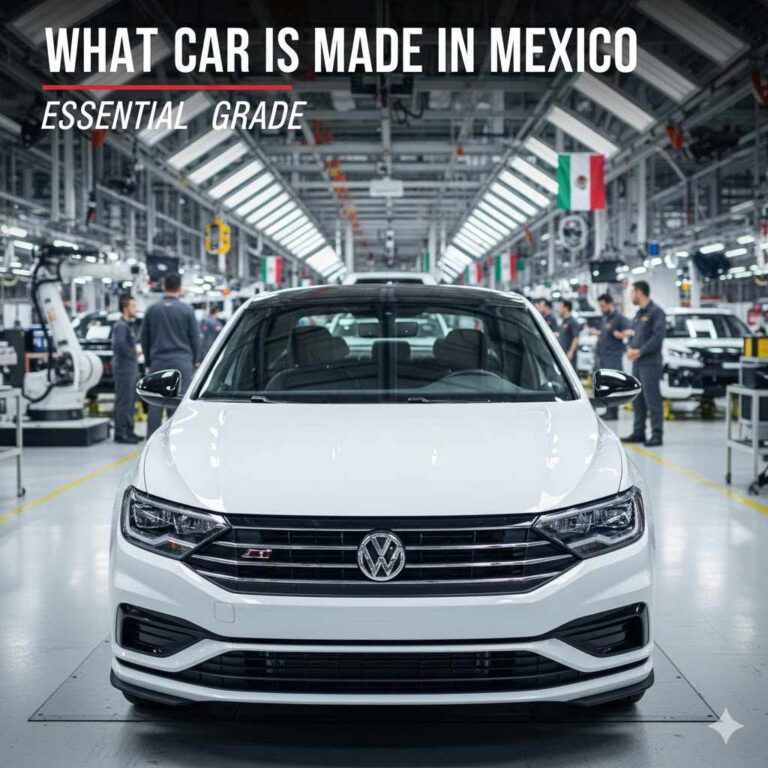How Much Does a Car Cost? Uncover the Truth Now!
The cost of a car can vary greatly depending on various factors such as the make and model, age, condition, and location. It is challenging to provide an exact cost as car prices can range from a few thousand dollars for used or older models to several hundred thousand dollars for luxury or high-end vehicles.
Additionally, factors such as taxes, registration fees, insurance, and maintenance costs should be considered when determining the overall cost of owning a car. To get a more accurate estimate, it is recommended to research specific car models and prices in your area or consult with a car dealership or online car sales platforms.
The Real Cost Of Car Ownership
The real cost of car ownership goes beyond the initial purchase price. One of the major factors to consider is depreciation over time. Cars tend to lose value as soon as they are driven off the lot, and this depreciation continues throughout their lifespan. It’s important to understand that the rate of depreciation varies depending on the make and model of the car.
Another cost to consider is maintenance and repairs. Cars require regular servicing, such as oil changes, tire rotations, and brake replacements, which can add up over time. Additionally, unexpected repairs can arise, leading to additional expenses.
Insurance is another cost that needs to be factored in. The cost of insurance depends on various factors, including the car’s make and model, the driver’s age and location, and the coverage options chosen.
Other costs to consider include fuel expenses, parking fees, and registration fees. It’s important to budget for these ongoing costs in order to have a clear understanding of the total cost of car ownership.
New Vs. Used: Cost Variations
When considering the cost of a car, it’s important to compare prices between new and used vehicles. New cars typically have a higher upfront cost but may offer lower maintenance expenses and better long-term value. On the other hand, used cars generally have a lower initial price tag but might come with higher maintenance costs over time. It’s crucial to weigh these factors when making a purchasing decision. Additionally, conducting thorough research and consulting with industry professionals can provide valuable insights into the price variations between new and used cars.
Budgeting For Your Vehicle
When budgeting for your vehicle, it’s important to calculate affordability by considering not just the upfront cost, but also the hidden costs associated with owning a car. These hidden costs include insurance, maintenance, fuel, and parking fees. It’s essential to factor in these expenses to determine the true cost of owning a car. Additionally, consider the cost of financing if you are planning to take out a loan. Understanding your budget and financial situation will help you make an informed decision about how much you can afford to spend on a car. By carefully considering all costs involved, you can ensure that your car purchase fits within your budget and financial goals.
Monthly Expenses
The cost of a car includes various monthly expenses. Loan payments are a significant part of the monthly cost, and they depend on the car’s price and the loan term. Additionally, insurance costs also contribute to the monthly expenses. The type of coverage and the car’s value affect the insurance premiums. It’s important to consider these factors when budgeting for a car.
Maintenance And Repairs
When it comes to maintenance and repairs, routine servicing is essential to keep your car in good condition. This includes regular oil changes, filter replacements, and fluid top-ups. However, unexpected costs may arise due to unforeseen mechanical issues or accidents. It’s important to budget for these expenses to avoid any financial strain. By staying proactive with maintenance and addressing any issues promptly, you can minimize the impact of unexpected costs on your budget.
Fuel Efficiency And Its Impact
Fuel efficiency is an important factor to consider when evaluating the cost of a car. Gasoline vehicles have been the norm for many years, but electric vehicles are becoming increasingly popular due to their lower fuel costs. The cost of gasoline varies depending on location and the type of car, but it typically ranges from $2 to $4 per gallon. On the other hand, electric vehicles can be charged for as little as $0.10 per kWh. This can lead to significant savings in fuel costs over the life of the vehicle.
When comparing the cost of electric vs. gasoline vehicles, it’s important to consider the upfront cost as well. Electric vehicles tend to have a higher initial cost, but they may be eligible for tax credits and other incentives that can offset the cost. Gasoline vehicles are generally less expensive upfront, but they may end up costing more in fuel costs over time.
| Gasoline Vehicles | Electric Vehicles | |
|---|---|---|
| Fuel Costs | Varies by location and vehicle type; typically $2-$4 per gallon | Can be charged for as little as $0.10 per kWh |
| Upfront Cost | Less expensive upfront | Higher initial cost, but may be eligible for tax credits and incentives |
Additional Ownership Costs
Owning a car comes with additional ownership costs such as insurance, maintenance, and fuel expenses. These costs can add up, so it’s important to budget for them when considering the overall cost of owning a car.
| Additional Ownership Costs |
| Registration and Taxes |
| When you purchase a car, you will also need to register it with your state’s Department of Motor Vehicles (DMV). The registration fees vary by state, but typically cost a few hundred dollars. In addition to the registration fees, you will also be required to pay taxes on your vehicle. The tax amount is based on the purchase price of the car and the state’s tax rate. |
| Depreciation Impact |
| Depreciation is the loss in value that your car experiences over time. This is an important factor to consider when calculating the cost of owning a car. The value of a car typically decreases the most during the first few years of ownership. On average, a new car will lose about 20% of its value in the first year. By the end of the third year, the car’s value could be as much as 50% less than what you paid for it. |
Strategies To Lower Car Costs
When considering the cost of a car, it’s important to choose a model that is cost-effective in terms of both initial price and long-term expenses. Researching and comparing different models can help in making an informed decision. Additionally, negotiating with the seller can lead to significant savings. Being aware of the market prices and having a clear budget in mind can also help in the negotiation process. Furthermore, considering factors such as fuel efficiency, maintenance costs, and insurance rates is crucial when aiming to lower car expenses.
Tools And Calculators
Budgeting for a car purchase is an important step in the process of buying a vehicle. You can use tools and calculators to determine the total cost of ownership, including expenses such as insurance, maintenance, and fuel. By considering all these factors, you can get a clearer picture of how much a car will cost you in the long run. This can help you make a more informed decision and ensure that the vehicle you choose fits within your budget. Total cost of ownership calculators are valuable resources that can provide insight into the financial commitment of owning a car.
The Future Of Car Pricing
The future of car pricing is influenced by various market trends and innovations that are aimed at reducing costs. With advancements in technology and manufacturing processes, car manufacturers are finding ways to make cars more affordable for consumers. This includes using innovative materials and production techniques that lower the overall cost of production. Additionally, the rise of electric vehicles and the development of autonomous driving technology are expected to have a significant impact on car pricing in the future. These advancements not only improve the efficiency and performance of cars but also reduce the cost of ownership. As a result, consumers can expect to see more affordable options in the car market, making car ownership more accessible to a wider range of individuals.
Conclusion
The cost of a car depends on various factors such as the make and model, age, condition, and location. It’s important to budget for not just the initial purchase price, but also ongoing expenses such as insurance, maintenance, and gas.
It’s recommended to research and compare prices from different sources before making a decision. By doing so, you can ensure that you’re getting the best value for your money and making an informed decision.






